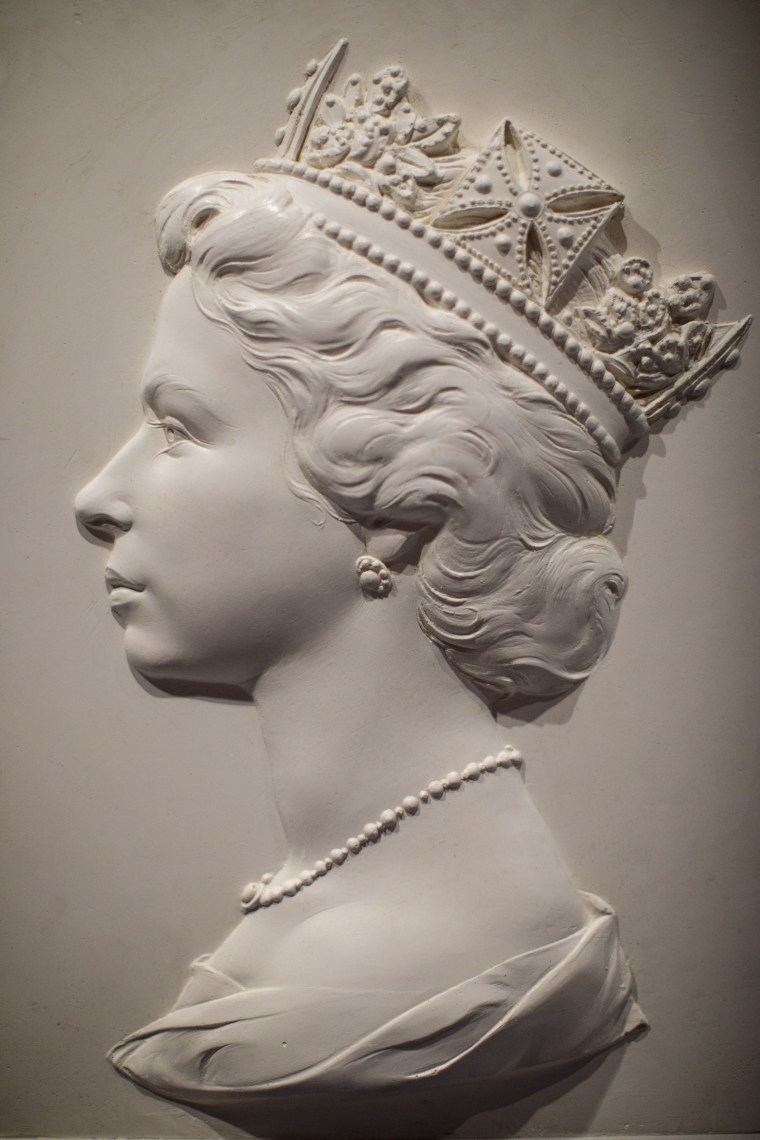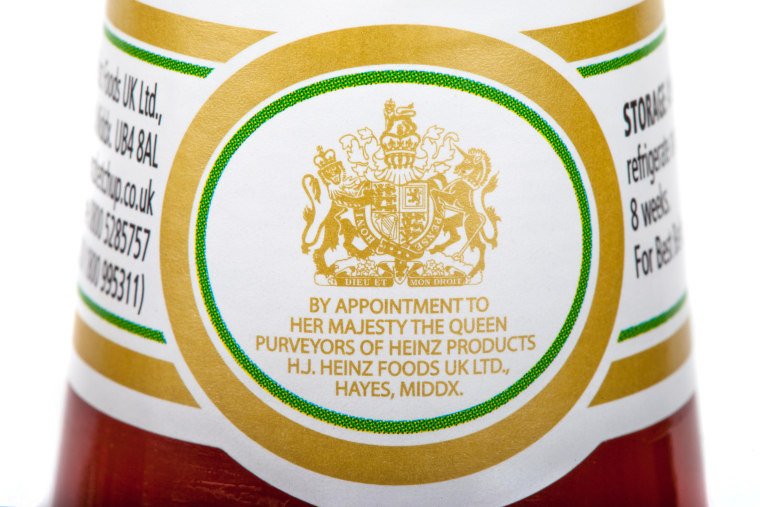National anthem
When Charles arrived at the gates of Buckingham Palace for the first time as a royal Friday, some in the gathered crowd sang the national anthem. But instead of “God Save the Queen,” which the vast majority of people in Britain will have grown up with, they sang “God save the King.”
The anthem, originally written in the 18th century, was first adopted in the 19th century. While there are several verses, only the first is usually sung at official occasions.
Mailboxes
Beloved by tourists, the red mailboxes, or postboxes as they are known in the U.K., that were created while Elizabeth was on the throne are adorned with her cypher, or monogram, E II R, identifying that she was the monarch when they were placed. Though they are increasingly rare, history lovers can still find mailboxes with the cypher of previous monarchs, including Elizabeth’s father, King George VI.
Now that Charles is on the throne, any new mailboxes will bear his cypher. Elizabeth’s cypher won’t be replaced and will remain in place, according to the Postal Museum in London.
Money
The queen’s image is featured on all British coins and currency bills. Elizabeth was the first monarch to appear on paper money and her portrait originally appeared on the 1-pound note in 1960. At the time, the drawing was criticized for being severe and unrealistic, according to the Bank of England. It has since changed, and other portraits have been more warmly received by the public.
There is currently 82 billion pounds, or $95 billion, worth of paper money in circulation, so changes to the design of the bills are likely to be made slowly. It will also take time for new bills, likely with the new monarch’s image, to be distributed and the older money with the queen’s portrait will continue to be valid.
On coins, the tradition of using the monarch’s portrait goes back centuries. Currently, the queen is pictured facing to the right. There is a tradition dating back to the 1600s, however, that the new monarch faces the opposite direction of the predecessor, according to the royal family website, so Charles will likely be pictured facing left.
Stamps

While it feels normal to see the queen on stamps, she was actually the first monarch to appear on postage in 1967. Elizabeth’s silhouette faces to the left on each stamp, rather than to the right as she does on coins. It is thought to be the most reproduced work of art in history, according to the Royal Mail, with hundreds of billions of stamps printed.
After her death, the Royal Mail assured the public that stamps bearing the image of the queen will remain valid for use. New stamps bearing the image of King Charles III will be designed in consultation with Buckingham Palace, it added.
Government services
As Britain is a constitutional monarchy, the queen or king is the figure that gives the government its legitimacy. One of the other main changes that will be immediately noticeable will be to government offices, like the court system, the treasury and the tax collection service, which will be renamed from “Her Majesty’s” to “His Majesty’s.” For example, instead of being called Her Majesty’s Courts, the pronoun will change, and the courts will be known as His Majesty’s Courts.
Goods and services

It’s not only on official government goods, services and buildings that the monarch appears. Commercial goods and services that supply the royal household are able to apply for a royal warrant, or a mark of recognition. That means that some brands, including Kellogg’s have a small mark on the box showing that they are used by the queen
With the queen’s death, warrant holders can continue to display her crest and the relevant wording for two years before a review of the warrant takes place. (The Royal Warrant Holders Association was among the myriad of organizations to issue a statement after the queen’s death.)
Source link



